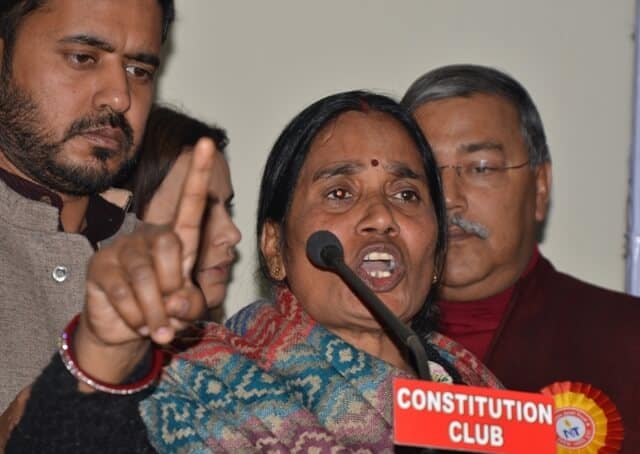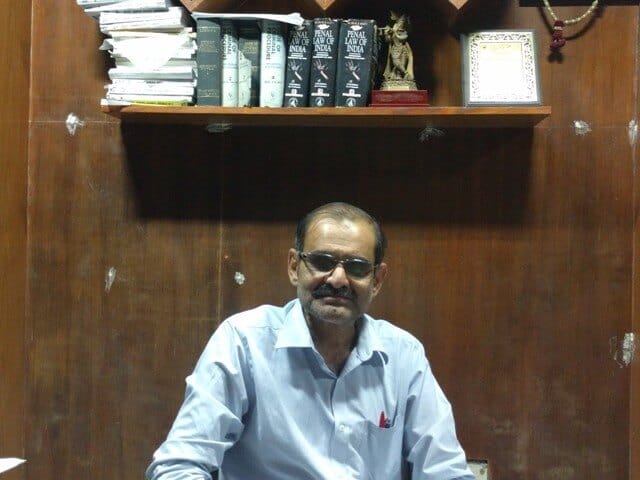By Asha Devi
Six years after my daughter was raped and murdered in a moving bus in the national capital on a cold December night, our society has not changed a bit. In fact, the situation has deteriorated as rapists have become more brutal now.
They are worse than animals. They crush a five-year-old girl with a boulder after raping her; not even an animal does that. More worrying is the fact that such rapists are being defended by people in government, politicians, lawyers and even cops. In the Kathua case, a cop was involved. Where we will go when the protector becomes the predator?
It is so disheartening that to divert attention from the gruesome crime they are also trying to give a communal colour to a five-year-old’s murder. Rape can never be communal. I can’t believe that a rape victim can be identified by her religion. That comes from politics. We have no options left. Our system has made us helpless; we have nowhere to go but to hit the streets for justice. In our country, a father goes to a chief minister’s residence seeking justice for his raped daughter but he gets beaten to death.
What can we do now? It is sad to see that the ones who gave the ‘Beti Bachao Beti Padhao (Save our daughters, educate our daughters)’ slogan are now defending their own legislator in an alleged gang-rape case of a minor girl and her father’s custodial death. People now see hope in us but I can’t help thinking how little I can do for them when I have failed to get justice for my own daughter.
Nirbhaya died in 2012 and after six years, we are still clueless when the accused will be hanged. Our pain and trauma is their politics, no matter which political party is in power. If they are serious, they should hold a one-day session in Parliament to discuss such brutal rape cases and find a solution. Even these politicians have daughters, mothers, and wives at home. Not even women politicians take up such issues; even they are quiet. TV debates are just more political blame-games.
When there is a solution to everything, then why there is no solution for rape? After my daughter was brutalised, the politicians who were in the Opposition then had organised candlelight vigils and marches and had forced the government to make the law more stringent. How many daughters must we lose to get a stringent law that works? I demand that these criminals should be hanged. And, of course, there’s a Nirbhaya Fund.
But who is using it and how is it being used? Who’s been benefited? I have got no response from the government so far. It is so shameful that people are questioning rape victims. I feel all these things are being done to divert attention.
If they continue to ignore it, more such cases will happen. People in power are sleeping as poor people are getting raped but if they continue to stay quite sooner or later their own daughters will have to pay the price as these rapists are only getting bolder.
(Asha Devi is the mother of the December 16, 2012 Delhi gang-rape victim Nirbhaya, a horror that sparked a nationwide outrage then and led to a strengthening of the Indian Penal Code section on rape) — with editorial assistance from Lokmarg

